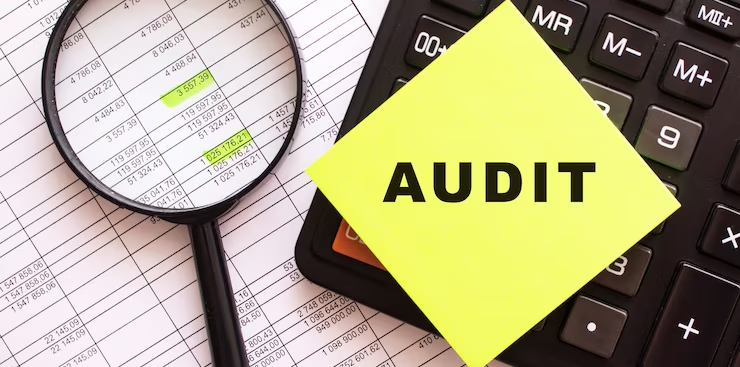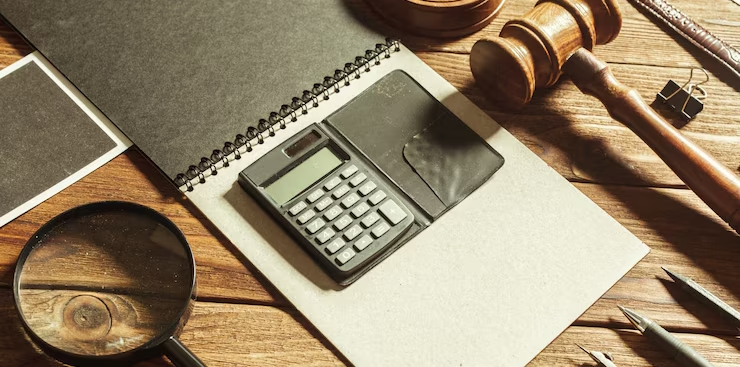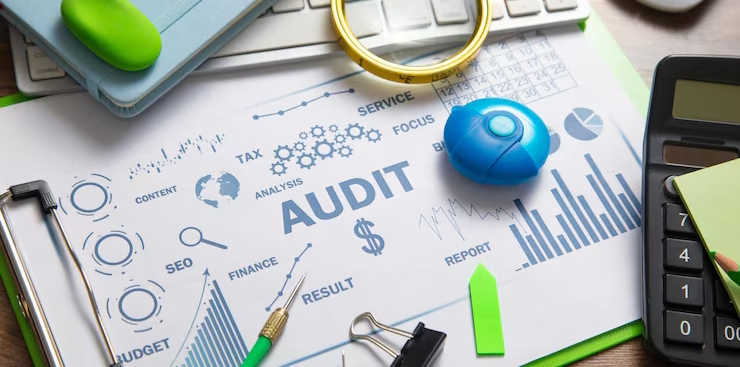In today’s increasingly complex financial landscape, forensic accounting audits have become a crucial element in safeguarding the integrity of financial records. These audits go beyond traditional accounting practices by providing a detailed analysis of financial activities to uncover fraudulent behavior, mismanagement, or financial discrepancies. Whether for businesses, legal professionals, or even individuals, forensic accounting audits can help ensure transparency and accountability in financial dealings.
This comprehensive guide will walk you through the basics of forensic accounting audits, the significance of their role, and how they can be used to protect both businesses and individuals. We’ll also highlight key reasons why you should consider engaging with forensic accounting services.
What is Forensic Accounting?
Forensic accounting involves the application of accounting principles and investigative techniques to uncover financial irregularities, fraud, and misconduct. Unlike traditional auditing, which primarily focuses on compliance with accounting standards, forensic accountants dig deeper into financial records to identify discrepancies, trace assets, and provide insights that can be used in legal proceedings.
The role of forensic accountants often involves:
- Investigating fraud:Detecting financial fraud, embezzlement, and other illicit activities.
- Legal support:Assisting in litigation by providing expert testimony and financial analysis.
- Asset tracing:Tracking and identifying assets that may have been hidden or misappropriated.
- Valuation of damages:Estimating the financial losses caused by fraud or mismanagement.
Forensic accounting audits are highly specialized, requiring an in-depth understanding of both accounting practices and investigative methods.
Why Forensic Accounting Audits are Essential
In an era where businesses and individuals are more susceptible to fraud and financial misconduct, forensic accounting audits offer a powerful tool for detecting and preventing such issues. Here are some of the primary reasons why forensic accounting is essential:
- Fraud Detection and Prevention
One of the most significant benefits of forensic accounting audits is their ability to detect fraud. Forensic accountants use a variety of investigative techniques, including data mining, forensic analysis of financial documents, and behavioral profiling, to identify any signs of fraud or embezzlement.
Whether it’s employees stealing from the company, external parties committing fraud, or misappropriation of funds, forensic accountants are trained to spot red flags in financial records that others may overlook. By uncovering fraud early on, businesses can prevent significant financial losses and protect their reputation.
- Financial Transparency
Financial transparency is crucial for maintaining trust with stakeholders, including investors, clients, and regulatory bodies. Forensic accounting audits ensure that all financial records are accurate, complete, and comply with industry regulations. By identifying discrepancies or misstatements, forensic accountants help businesses present a true and fair view of their financial situation.
- Litigation Support
Forensic accounting audits play a critical role in legal proceedings, particularly in cases of financial fraud or disputes. Forensic accountants can serve as expert witnesses in court, providing testimony and presenting financial evidence that supports the claims of one party or refutes the allegations of the opposing party.
These audits provide clear, detailed documentation of financial transactions, which can be crucial in settling legal disputes related to breach of contract, partnership disagreements, divorce settlements, and insurance claims.
- Risk Management
Forensic accounting audits help businesses identify potential risks in their financial practices. By scrutinizing financial records for anomalies, forensic accountants can pinpoint areas where the business may be vulnerable to fraud or financial mismanagement. This allows business owners to take proactive steps to mitigate risks and implement stronger internal controls.
- Asset Recovery
In cases of fraud, one of the most challenging tasks is identifying and recovering misappropriated assets. Forensic accountants are experts in asset tracing, using various investigative techniques to locate and recover assets that may have been hidden or transferred to other parties.
Whether it’s tracking down missing funds, identifying fraudulent transfers, or uncovering hidden investments, forensic accountants play a pivotal role in asset recovery efforts.
Key Components of Forensic Accounting Audits
A forensic accounting audit involves several stages, each of which plays a vital role in uncovering financial discrepancies and providing clarity on financial matters.
- Data Collection and Analysis
The first step in a forensic accounting audit is gathering all relevant financial data, including bank statements, accounting records, tax returns, invoices, contracts, and other financial documents. Forensic accountants will analyze these records for signs of unusual activity or discrepancies.
This analysis may involve reviewing large amounts of financial data, cross-referencing information, and identifying any transactions that appear to be irregular. Forensic accountants may also use specialized software tools to help detect patterns, trends, and anomalies in financial transactions.
- Interviewing Key Personnel
In many cases, forensic accountants will conduct interviews with key personnel within the organization to gain insight into the financial processes and uncover any potential red flags. These interviews can help identify any unusual behavior, such as discrepancies in reports or failure to follow proper procedures.
- Tracing Assets and Liabilities
Another crucial aspect of forensic accounting audits is tracing assets and liabilities. Forensic accountants will follow the trail of financial transactions to uncover hidden assets or liabilities. This could involve examining transactions involving cash transfers, wire transfers, or assets that have been concealed or moved to another party.
- Creating Reports and Recommendations
Once the analysis is complete, forensic accountants will create a detailed report outlining their findings. This report may include evidence of fraud, mismanagement, or other financial irregularities, along with recommendations for corrective actions. If the audit is part of a legal case, the report may also include expert testimony for use in court.
- Legal Action and Resolution
If the forensic accounting audit reveals fraudulent activity or financial misconduct, the findings may lead to legal action. Forensic accountants work closely with legal professionals to provide expert testimony, assist with litigation, and help resolve financial disputes. Their expertise can also assist in asset recovery efforts, ensuring that misappropriated funds are returned.
Types of Forensic Accounting Audits
Forensic accounting audits can be applied in various scenarios, including corporate investigations, personal disputes, and legal proceedings. Below are some common types of forensic accounting audits:
- Corporate Fraud Investigations
Forensic accounting audits are often used in corporate fraud investigations to uncover any illegal activities within an organization. This could include embezzlement, kickbacks, financial misreporting, or fraudulent financial statements. A forensic accountant will examine financial documents and conduct interviews to detect any signs of fraudulent behavior.
- Divorce and Family Law Cases
In divorce cases, forensic accounting audits are frequently employed to ensure an equitable division of assets. Forensic accountants may be tasked with uncovering hidden assets or identifying discrepancies in financial disclosures made by one of the parties. They can also help assess the true value of assets and liabilities during divorce settlements.
- Insurance Claims
Forensic accountants can assist in insurance fraud investigations by examining claims and determining whether the reported damages are legitimate. This may involve verifying the value of assets, assessing whether the claimed damages are accurate, and identifying any signs of fraudulent activity.
- Bankruptcy Investigations
Forensic accounting audits are essential in bankruptcy investigations, where they can help identify potential fraud or financial misconduct that led to the bankruptcy. Forensic accountants may also be involved in asset recovery efforts to help creditors recover lost funds.
- Government Investigations
Forensic accounting audits are often used in government investigations to identify fraud, corruption, or mismanagement of public funds. Forensic accountants assist law enforcement and regulatory agencies in tracking down illicit activities and holding individuals accountable.
How Forensic Accounting Helps Prevent Financial Mismanagement
Forensic accounting isn’t just about uncovering fraud and misconduct; it also plays an important role in preventing financial mismanagement from occurring in the first place. Here’s how:
- Establishing Strong Internal Controls:Forensic accountants help businesses create robust internal controls that prevent fraud and financial mismanagement. This includes implementing policies and procedures for financial transactions, reporting, and auditing.
- Conducting Regular Audits:Regular forensic audits can help identify potential issues before they become significant problems. This proactive approach allows businesses to detect irregularities early and take corrective action.
- Training and Awareness:Forensic accountants often train staff members on how to identify red flags of fraud and financial mismanagement. By fostering a culture of awareness and accountability, businesses can reduce the likelihood of fraud occurring in the first place.
Conclusion
Forensic accounting audits play a vital role in ensuring the integrity and transparency of financial dealings. By uncovering fraud, mismanagement, and discrepancies, forensic accountants provide businesses and individuals with the tools they need to safeguard their assets and maintain financial health.
Whether you’re a business owner looking to protect your financial interests, a legal professional in need of expert insights, or someone dealing with complex financial issues, forensic accounting audits offer valuable support in identifying and resolving financial misconduct.
Secure Your Financial Integrity Today
If you’re looking to safeguard your financial future with professional forensic accounting audit services, we are here to help. Whether you’re a business owner seeking to protect your assets or a legal professional requiring expert insights, contact us today at (877)-399-2995 or visit Mortgage Audits Online to learn more. Secure your financial future with confidence!







